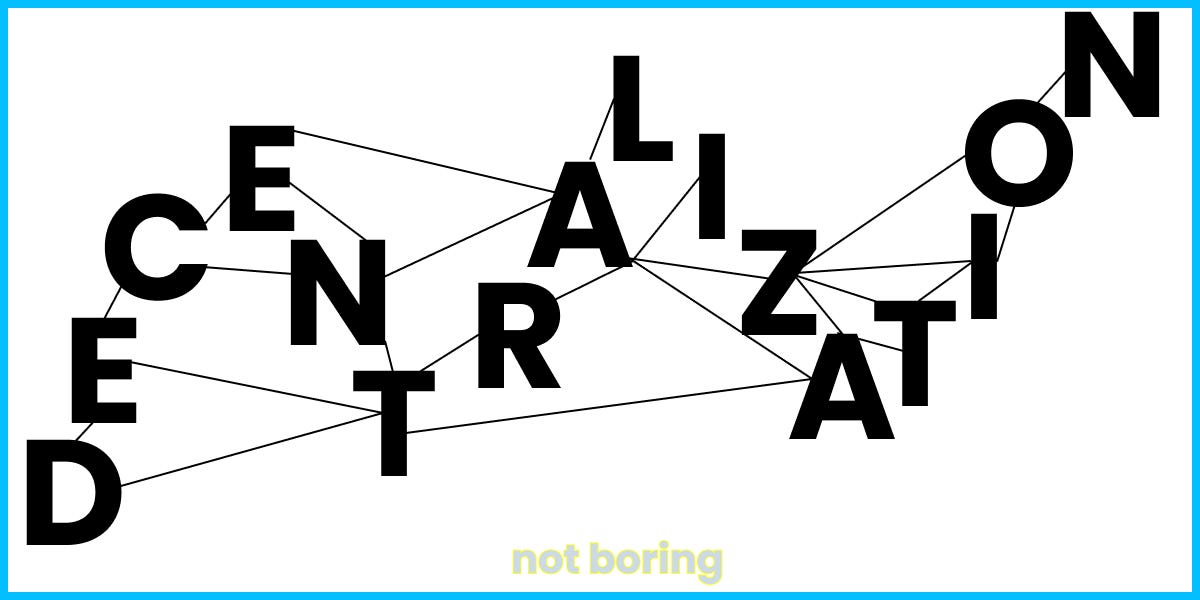
Saved by Ilana Ettinger and
Decentralization

Saved by Ilana Ettinger and
What do we mean by “decentralization,” anyway? It’s a capacious term, and in the past few years it’s been tossed around more freely than ever. Flocks of birds, free-market economies, cities, peer-to-peer computer networks: these are all considered examples of decentralization. Yet so, too, in other contexts, are the American public-school system an
... See moresince about 1950 it is now favoring decentralization (transistor, personal computer, internet, remote work, smartphone, cryptocurrency).
sari added
sari added
“Decentralize All the Things.” Why not take the philosophies, processes, and technologies
Jerod Morris added
sari added